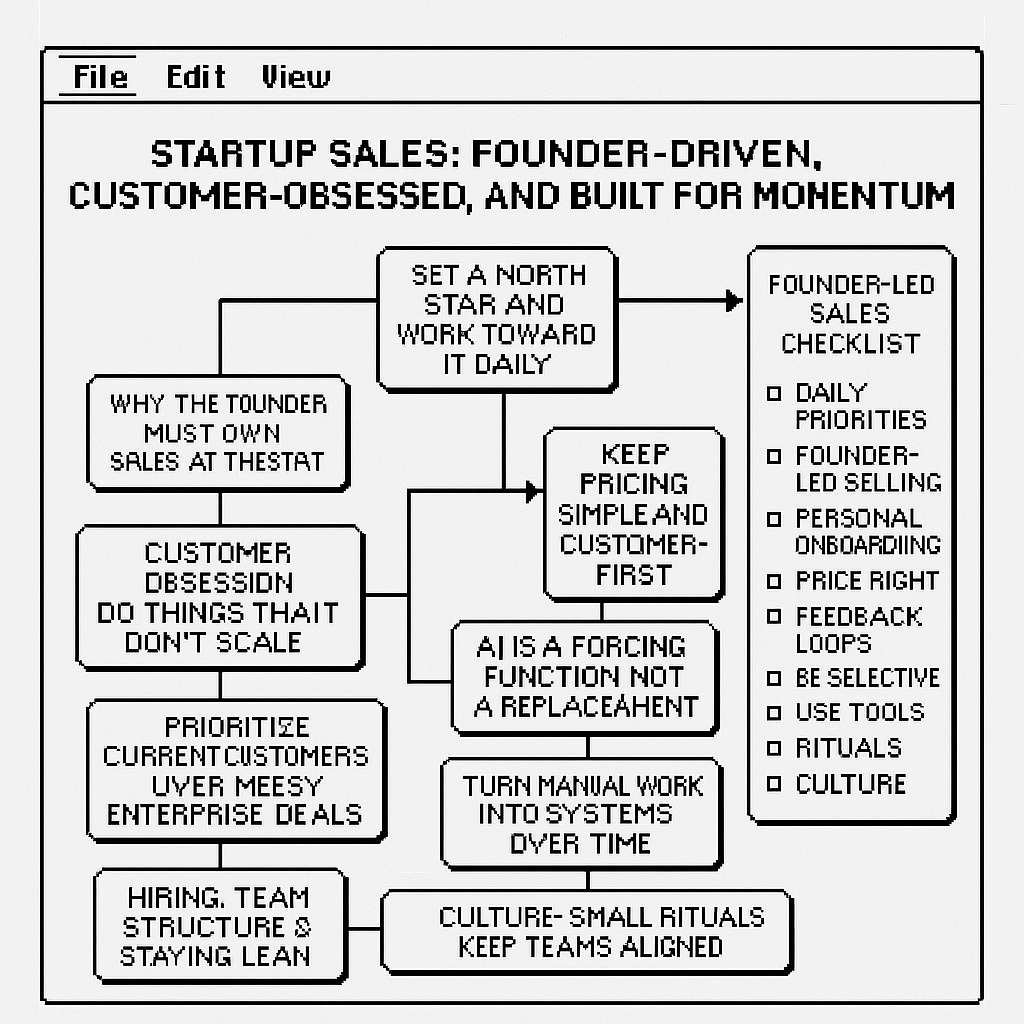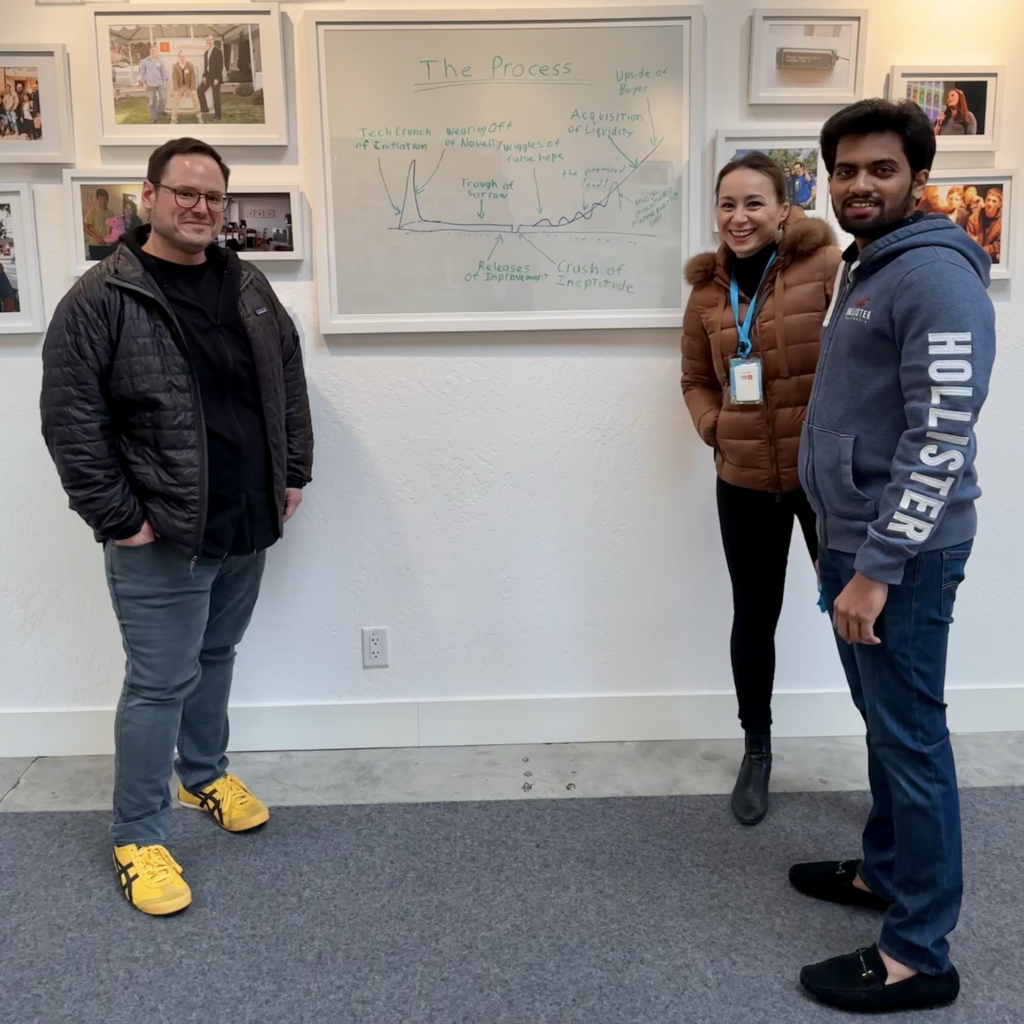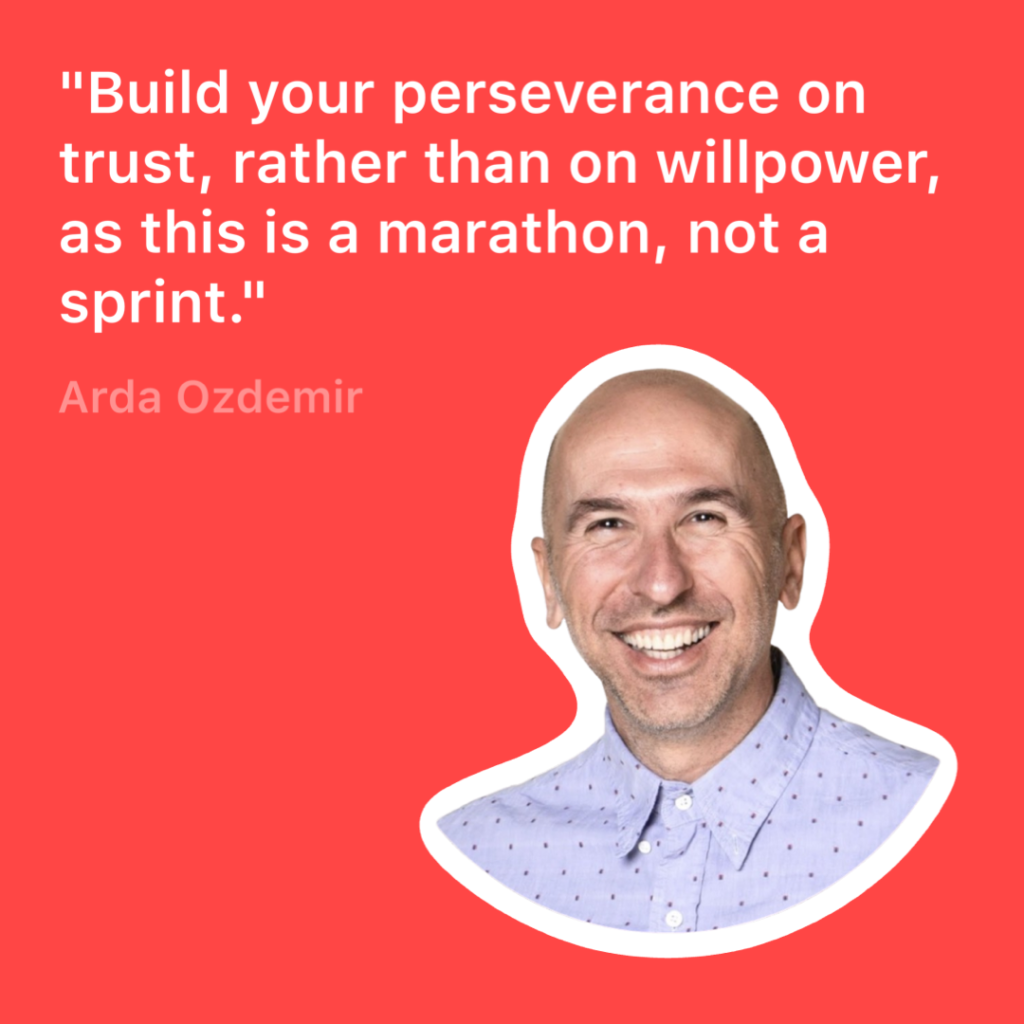
Early-stage sales is not a playbook you copy and paste.
It’s founder-driven hustle, measured priorities, and relentless focus on getting users to love your product.
Build with customers — not for noise.
Stay lean, price right, iterate fast.
Why the Founder Must Own Sales at the Start
In the first year or two, customers buy you more than the product.
The product is an extension of you.
Founder-led sales means:
- Taking calls and late-night questions
- Turning customer feedback directly into engineering changes
- Closing deals yourself until the motion becomes repeatable
When you’re on the front lines, you hear exactly what customers want — fast feedback → faster product → faster growth.
Set a North Star and Work Toward It Daily
A simple monthly revenue target gives direction.
Break it down into daily, non-negotiable actions.
My framework:
Write 1–2 priorities each day that push the business forward.
Do them at all costs.
Small, consistent wins compound.
How to Stay Focused
- Write two priorities each morning
- Reflect nightly — did you hit them?
- Cut out low-value distractions during core focus time
Discipline > complexity.
Customer Obsession: Do Things That Don’t Scale
Early customers need handholding — and that’s a feature, not a bug.
Offer direct access, personal onboarding, and fast support.
Most become self-sufficient within a month, but that first impression creates referrals, insights, and momentum.
Ignoring customers = silent churn.
Listening to them = a roadmap for what to build next.
Every one of our customers has my cell.
If they need me, I’m there.
Prioritize Current Customers Over Messy Enterprise Deals
When a big prospect asks for heavy custom work, ask:
- Will this help us scale?
- Or pull us off our roadmap?
Protect your core users.
Build features that are scalable and repeatable.
Keep Pricing Simple and Customer-First
Simple tiers win attention.
Early adopters deserve easier pricing and lower friction.
- Simple tiers > complex credits
- Early adopter discounts build momentum
- Waive implementation fees if needed — focus on onboarding
Hiring, Team Structure & Staying Lean
A small, selective, remote team keeps burn low and iteration fast.
Hire slowly. Hire intentionally.
Bringing on sales too early usually slows you down — your conviction and customer intuition are irreplaceable at the start.
Turn Manual Work Into Systems Over Time
At first:
Do the unscalable work — onboarding, calls, hands-on support.
Over time:
Document → systemize → automate.
AI Is a Forcing Function, Not a Replacement
AI helps draft emails, transcribe calls, and speed up workflows.
But early on, the founder’s intuition and relationship-building matter far more.
AI helps you ask:
Am I doing this the right way?
Culture: Small Rituals Keep Teams Aligned
A simple weekly ritual like “high, low, gratitude” creates alignment, surfaces friction early, and keeps the team human.
Culture compounds just like product.
Founder-Led Sales Checklist
- Daily priorities: 2 things, done no matter what
- Founder-led selling: You own it until repeatable
- Personal onboarding: Direct access for early customers
- Price right: Simple, customer-first pricing
- Feedback loops: Treat complaints as “good poison”
- Be selective: Don’t build everything for everyone
- Use tools: AI and simple systems to amplify output
- Rituals: Weekly check-ins for culture + alignment
Early growth isn’t glamorous — it’s discipline, empathy, and iteration.
If you nail the basics, you’ll find your way to a repeatable growth engine.










